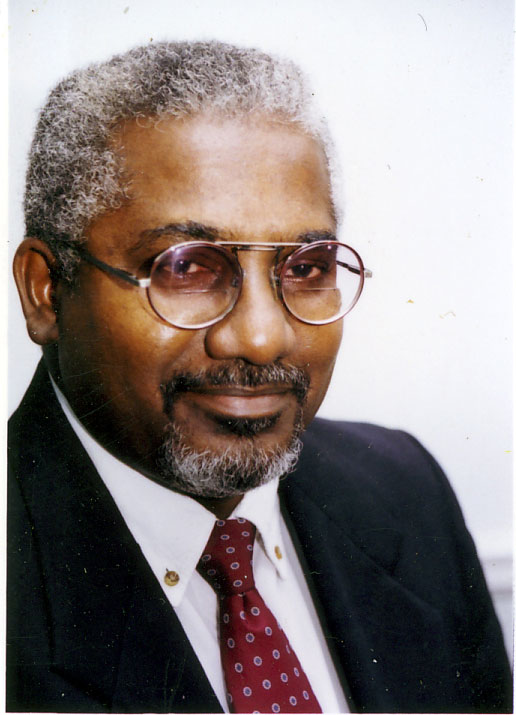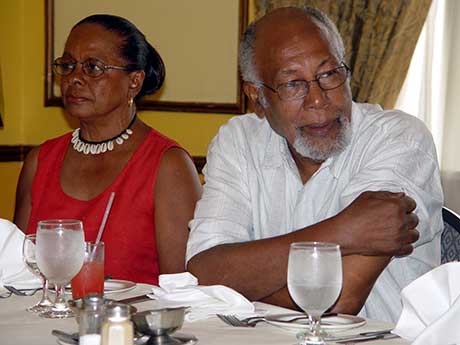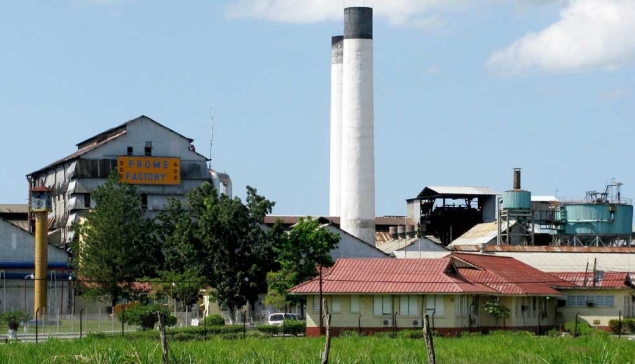“How selfish soever man may be supposed, there are evidently some principles in his nature, which interest him in the fortune of others, and render their happiness necessary to him, though he derives nothing from it, except the pleasure of seeing it.” Adam Smith: “The Theory of Moral Sentiments” (1759) and, “An Inquiry into the Nature and Causes of the Wealth of Nations” (1776)
MIAMI, Florida, May 3, 2021 - Growing up in British Guiana, I marveled at Dutch engineering genius. They created the seawall and amazing below-sea-level coastal water and drainage systems.
Georgetown, the country’s capital, was scenic and serene, at the time considered the Caribbean’s Garden City. Imperceptibly, as my dad took our family around the country during those long ‘Summer’ vacations I began to value nature’s infinite variety and Guyana’s biodiversity.
Fast forward: today filled-in canals, haphazard private construction effected with little or no reference to sensible zoning and construction code, a seeming lack of understanding and concern for cultural and other lasting beneficial impacts of landmarks like the St. George’s Cathedral and apparent disregard for environmental imperatives prevail.
 GT Cathedral 828
GT Cathedral 828 So many questions: why is speaking truth to power rare, difficult, often to no avail and occasionally hazardous? Experience and study lead to recognition of the nature of political competition and struggles to combat human failings. All of this surrounds the amazingly difficult task of persuading human beings to “do the right thing”
 Wilbern Persaud1 Wilbern Persaud1 |
| Wilberne Persaud is a writer, Op-Ed Columnist and Economist, formerly Senior Lecturer and Head, Department of Economics, The University of the West Indies, Mona, Kingston, Jamaica. His latest publication: “Jamaica: Post-Colonial Struggles for Dignity, Equity and Development – Wilberne Persaud Selected Columns 1976-2013” is available on Amazon, in both Kindle and Paperback Versions. |
These issues take on fundamental significance as Guyana exploits oil and gas which, sensibly pursued, shall transform the economy and society.
Kaieteur News April 09, 2021 reports “The Georgetown Chambers of Commerce and Industry’s (GCCI) recently minted President, Timothy Tucker, is calling on the ruling administration to put in place not just a Local Content Policy but firm legislation, to punish defaulting companies. ” An April 7 letter writer Lynn Nicholas, considers this ‘Rent Seeking’.
Let’s not be detained by technical jargon: Economic Rent means unearned compensation — value an economic actor obtains not by effort, bearing no relation to opportunity cost. Simply put, ‘Guyanese-ness’ of an individual or entity bestows benefit.
Possible pitfalls of this phenomenon include potential for corruption, scourge of inflation and succor for the dreaded Dutch Disease.
Local Content legislation seeks to reverse policy that condemned colonial populations to poverty. Resource exploitation satisfied Imperial design. Current discourse however, appears to ignore completely, the historical reality of Direct Foreign Investment (DFI) that began with European expansion. Colonial Governors exercised more power than the British Prime Minister could at home.
Arthur Lewis’ 1949 discourse on “Colonial Development” took an unprecedented step, citing racism as a clear retardant to economic development.
He argued “… largely for racial reasons, … mining companies have not trained Africans as technicians … The plantation companies have not used any natives except as manual and clerical workers ... commercial firms have been just as exclusive ... Colonial Governments themselves, in spite of their protestations of trusteeship, have set the example; it was only in 1942 that the regulations prohibiting Africans from acceptance for administrative services in West Africa were withdrawn, and then only because the war-time talk about democracy shamed the Colonial Office into its withdrawal.”
Today much has changed, though more in form than function. Should we consider bauxite extraction in both Guyana and Jamaica we encounter interesting observations.
Initially, Jamaica knew little if anything, about bauxite. Britain’s Colonial Office controlled negotiations. Jamaica’s Governor, intending its use in the war effort, communicated existence of the ore to aluminum producers among the allies at war. His efforts failed. Later, both US and Canadian companies developed mining operations that paid US $0.40¢ per ton!
In 1916 Civil Service officials and Director of Geological Survey advocated creating hydroelectric power generation to develop a profitable aluminum industry in British Guiana. Their view was ignored. Alcoa, to alleviate local concerns, created the Demerara Bauxite Company with Directors, Officers and parent company all British. It emphatically indicated its commitment to create an alumina processing plant “on British soil”. It duly did, in Canada!
The International Bauxite Association emerged in mid-1970. Finally, countries like Guyana and Jamaica received a fair price for bauxite. As the Organisation of Petroleum Exporting Countries quadrupled oil prices in 1973, bauxite exporters established a producer association that might, if only momentarily, mimic its ‘success’.
Bauxite trading, an intra-company transaction, allowed no knowable world market price. Yet London Metal Exchange quotation for aluminum ingot was always in plain sight. My former Lecturer, later colleague at The University of the West Indies, late Prof. Alfred Francis, superb Economist/Econometrician, spearheaded the IBA initiative that created the pricing formula.
 a a francis460
a a francis460
The point of all this is to make clear the following:
- Guyana has but one limited, time-bound chance, to make oil and gas its pathway to sustainable development with environmental and human development equity.
- History is the only laboratory of the Social Sciences; Economics, though it may appear to have pride of place among its sister disciplines, must reflect and embody an understanding of the forces governing possibilities of policy choice success. Those assumptions that generate fabulous theoretical outcomes must be examined.
- Oil Majors, like all DFI firms, must for survival, adhere to the goal of profit maximization — a relentless, even if ruthless rule.
- The obvious and best strategy shall always be providing win/win, NOT zero-sum game results: heads I win, tails you lose!
- Negotiations with Exxon and others MUST reflect these imperatives.
These incontrovertible maxims one may insist, require appropriate openness in negotiations, transparency in seeking support, buy-in of the population and demonstrated integrity that together, form the basis of societal harmony.
A Stabroek News’ April 18, 2021 report claiming: “An oil and gas masterplan for Guyana done by the Government of Japan had concluded in 2019 that a gas to power solution based on the country’s petroleum operations is economically viable but it leaned heavily in favour of an offshore facility rather than an onshore plant”, is therefore disturbing. Declaring Wales Estate the site for a gas facility seems to defy all the above criteria.
Presenting no rationale while not making this ‘master plan’ public, allows nothing but speculation. Did Guyanese taxpayers fund it? Does Mitsubishi have conflicting interests? Have probabilities of potential catastrophic accidents been assessed? Without official answers we merely provide partially informed speculation.
Wales Estate may have been one of a few potential sites deemed viable. Government contemplates this becoming an industrial hub. Should that be the plan, an onshore site wins out. A critically important issue at stake must be the fact that, unlike conventional gas to power plant, a sea-floating operation requires highly sophisticated expertise Guyana does not possess.
Instead of having a value-added buildout providing largely local construction, assembly and operation, a floating facility would likely be manufactured in South Korean or Japanese shipyards and be operated by foreign technicians. It would provide power but little local content, or transplantation of skills and expertise to Guyanese.
For some insight see: https://oilandgas.mhi.com/casestudies/offshore-floating-supply-chains_a-one-stop-solution-for-lng-demand/
The government seems to be trying at last, to address some of these lingering concerns. Vice President Jagdeo’s April 26, press conference dealt with many of the issues raised here and revealed five studies the government has relied on to choose the sites and style of the gas plant. I should also indicate that knowledgeable folk consulted on this particular issue considered the report being hidden, merely “… a matter of Guyanese culture.” Might this have been correct!



